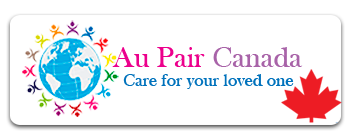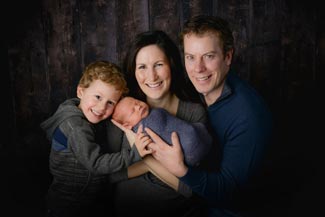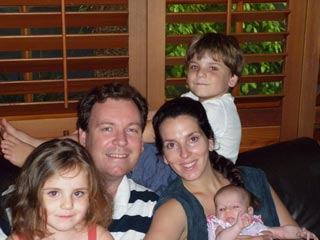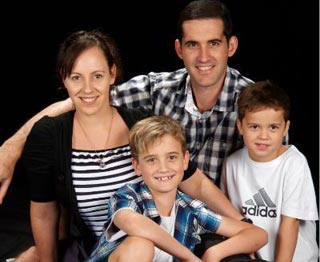A lot of health and safety is basic common sense. Take time to talk about this and look around the house and garden together allowing you to identify hazards and ask questions so that you can avoid harm to children.
Discuss safety and boundaries with the host parents. Ask them to show you where to find a first aid box and a thermometer (and how to use it).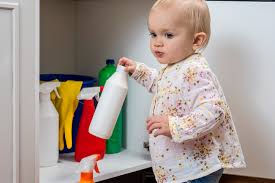
Make sure you have emergency phone numbers (emergency services/poison line/parents/doctor) nearby at all times, also when going out. Discuss in advance in what situations parents wish to be called during the day. If in doubt, it is better to call.
Do not give medicine without specific instructions from a parent to do so.
In & around the house:
Children love water but it can be dangerous if the child is not supervised by an adult. Always check the temperature of the water to make sure it is not too hot. Never leave the child alone in the bath, not even for a second, the risk of drowning is high and it can happen very quickly.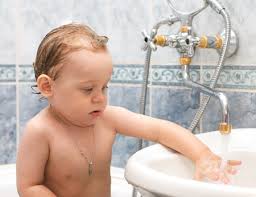
Many Canadian homes have a swimming pool. If your family has a pool, please make sure you ask them to talk you through all safety in detail. Most pools in Canada are fenced off to ensure children do not just wander out of the house into the pool.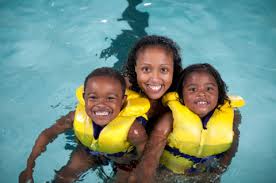
Food handling and kitchen hygiene are important in keeping the family safe and healthy. Keep food in the fridge as long as possible and when food is warmed up, make sure it is piping hot before you serve it. (and then for very young ones it need to cool down a bit again!) If you are not sure how to prepare something PLEASE ASK! If food is not cooked correctly it can make you (and the children in your care) ill.
Raw and cooked food should not be kept together or touch the same chopping boards/utensils. Be especially careful with meat. When taking food out for the day (picnic), make sure you use a cold-box to ensure food stays fresh in the Canadian heat! If you need to cook for the family on a regular basis and you do not feel confident about kitchen & food hygiene, please research this subject further online and/or ask you host family of you can do an online course.
Remind children (and yourself) to wash hands regularly, after toilet, before and after food handling, before eating, after touching animals. Have wipes with you for ‘washing on the go’ with little children.
Children should be kept away from cookers, ovens and barbeques whist in use. Handles of saucepans need to be keep turned away to avoid being pulled/knocked over.
Kitchen cupboards – Cleaning products should be kept in a locked cupboard or high up and out of reach to avoid serious injury to a child.
If the plug socket is not being used it should have a child safety cover or at least be switched off so that items cannot be poked into the holes. When not in use; electrical appliances should be switched off at the plug. You should not be asked to do ironing at the same time as looking after young (pre-school) children. Children should be supervised when using electrical appliances.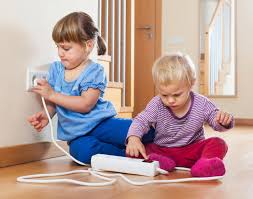
Safety equipment such as high chairs, stair gates and cots that are provided by the family should be use at all times and used correctly. Please ask a host parent to demonstrate how these are used.
Distraction
If you are on your mobile (call or text) whilst looking after the children, you are bound to be distracted. Make sure it is safe to answer the call and do not chat too long!
Safety when out & about
If you take a child out in a buggy or pram, make sure you put the safety straps on at all times, a younger child can fall forward and an older child can jump out and run off in seconds!
In the car, you need to make sure all children are strapped into age appropriate car seat and/or seatbelts. Make sure the parents show you. Before you catch a lift with anyone else, check with the parents that this is OK and only travel if all children have a proper seat & belt in the car.
Teach children to ‘read the road’ as you go. Little ones need to hold hands for crossing and older ones can help you by telling you when it is safe to go. 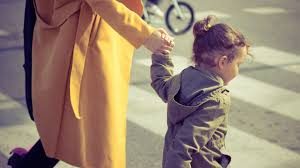 Discuss with the host parents how far they allow their children to go by themselves. Children may tell you different boundaries to their parents.
Discuss with the host parents how far they allow their children to go by themselves. Children may tell you different boundaries to their parents.
Children riding bikes or skateboards should wear helmets.
Sun Safe
The Sun is very strong in Canada during Summer and protection should be taken seriously, especially with children.
First Aid – the very basics:
‘Kissing it better’ or a cold wet cloth and a cuddle can do miracles for small incidents! Why not sing a song together for distraction!
If the incident is slightly more serious:
Minor cuts & scrapes – clean out with water and mild soap or a wet wipe if you are on the go. Put a plaster or bandage on (smiley face on it!?) and kiss it better
Deep cut – if there is excessive bleeding apply a cold wet cloth with some pressure and call the parents. If needed you may need to call a doctor too as stitches may be needed.
Bumps – apply ice or cold wet cloth to stop swelling. If the child is showing signs of concussion (dizzy, sick, vomiting, eyes looking strange, sleepy) CALL PARENTS & CALL DOCTOR
Burns – run cool water over a minor burn for 5-10 minutes. If the burn is serious (large area or in the face or showing blisters or oozing) CALL PARENTS & CALL DOCTOR
Splinters – wash with water and mild soap, try pulling out the splinter with tweezers. Tell the parents as soon as they come home and check daily to make sure it does not get infected.
Poisoning – if a child has swallowed something potentially dangerously (chemicals/medicine) CALL DOCTOR – do not try to make the child sick! And call parents.
Sick child
Fever – you can usually tell from observing a child that something is not right; cranky, clammy, not eating, lack of energy and lots of sleep may all be signs.
Check a child’s temperature. The body temperature of a human being should stay at around 37 degrees Celsius (98.6 Fahrenheit). If it is above this the child has a fever. Crying or screaming could make the fever go up so try to calm a child if needed. Call the parents and see if they are able to return home. In case of high fever – call a doctor.
Common illnesses
Cold or flu – similar signs to those in adults, runny nose, couching, sneezing and possibly a sore throat also. Give plenty of drink and let the child eat if it wants to. Extra naps may help. Discuss further action with the parents when they return home.
Diarrhea or vomiting
Make sure the child has enough to drink. Do not push food. If it is serious and the child is in pain or upset, call the parents and discuss if they can return home.
